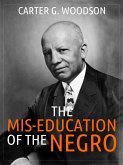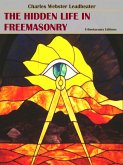Right before his death in 1900, American essayist Charles Dudley Warner delivered in Washington an essential lecture about African Americans, education and citizenship, "The Education of the Negro".
This short lecture begins this way:
'At the close of the war for the Union about five millions of negroes were added to the citizenship of the United States. By the census of 1890 this number had become over seven and a half millions. I use the word negro because the descriptive term black or colored is not determinative. There are many varieties of negroes among the African tribes, but all of them agree in certain physiological if not psychological characteristics, which separate them from all other races of mankind; whereas there are many races, black or colored, like the Abyssinian, which have no other negro traits.'
Charles Dudley Warner, author, critic, an editor, is best known today for his collaboration with Mark Twain on "The Gilded Age".
His essays in social and literary criticism generally favoured social and literary reform, albeit of a limited kind. In "The Education of the Negro", he encouraged African American suffrage and education, he nonetheless argued that manual training and a designedly slow pace of racial assimilation was necessary.
This short lecture begins this way:
'At the close of the war for the Union about five millions of negroes were added to the citizenship of the United States. By the census of 1890 this number had become over seven and a half millions. I use the word negro because the descriptive term black or colored is not determinative. There are many varieties of negroes among the African tribes, but all of them agree in certain physiological if not psychological characteristics, which separate them from all other races of mankind; whereas there are many races, black or colored, like the Abyssinian, which have no other negro traits.'
Charles Dudley Warner, author, critic, an editor, is best known today for his collaboration with Mark Twain on "The Gilded Age".
His essays in social and literary criticism generally favoured social and literary reform, albeit of a limited kind. In "The Education of the Negro", he encouraged African American suffrage and education, he nonetheless argued that manual training and a designedly slow pace of racial assimilation was necessary.









